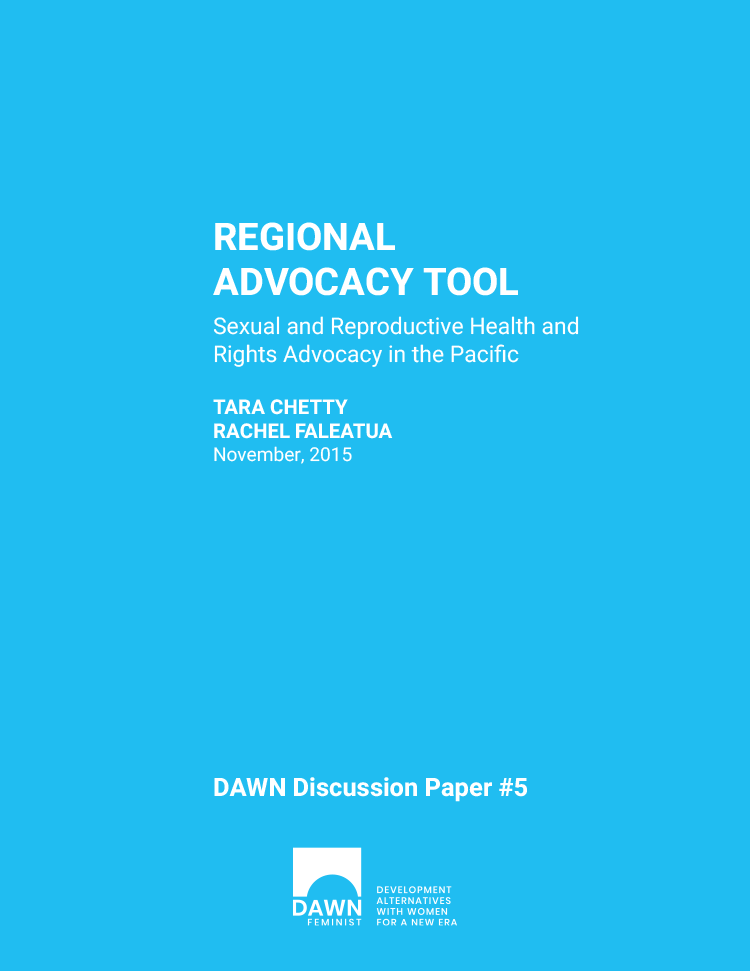EXECUTIVE SUMMARY
The Pacific island region stretches across a large part of the earth’s surface, connected by the world’s largest ocean. With its relatively small population, the region has often been marginalised in global debates, including on sexual and reproductive health and rights (SRHR). Given the geographical and cultural diversity, there are a wide range of SRHR issues affecting the lives of Pacific islanders.
Sexual and reproductive health services continue to be under-funded across the region, despite an influx of resourcing around HIV prevention over the past decade. This is because integration of services has been poor, with less attention paid to contraceptive information and delivery and other SRH services. Recommendations therefore include: better integration of HIV and other SRH services, which should be comprehensive, gender sensitive, non-judgemental and youth-friendly; increased funding for SRH services as part of increased health and social spending overall; and better alliances between human rights advocates and those working in the health sector in Pacific island countries.
The needs and rights of young people are of critical concern as almost half the population in the Pacific region is under 25. Among youth, young women and girls, young people with disabilities and lesbian, gay, bisexual, transgender, queer and intersex (LGBTQI) young people face additional barriers in accessing their rights. Recommendations for addressing their concerns include: expanding SRHR programming for youth by recognising and addressing the diversity of young people, specifically groups that are marginalised; strengthening current efforts to scale up comprehensive sexuality education for all adolescents and youth within all countries in the Pacific; improving availability and access to comprehensive youth and adolescent focused SRH services; and promoting empowerment of and SRHR initiatives by and for young women.
The Pacific has some of the highest rates of gender-based violence (GBV) in the world. Violence is a direct violation of bodily integrity and autonomy. GBV flourishes within patriarchal hierarchies in the Pacific, where women and LGBTQI persons face discrimination at multiple levels, including on account of their socio-economic status, ethnicity, disability and place of origin. Recommendations in this area include: review, amend and promote legislation to address all forms of GBV to ensure protection, safety and security of individuals; mobilise SRHR advocates to amend restrictive abortion laws in the region; identify and support regional champions for rights in relation to sexual orientation and gender identity (SOGI); strengthen efforts to gain formal equality for sex workers by decriminalising sex work in accordance with international human rights standards; encourage research and data collection on issues of sexual and reproductive health rights, including abortion and the situation and needs of LGBTQI persons and persons with disabilities.

